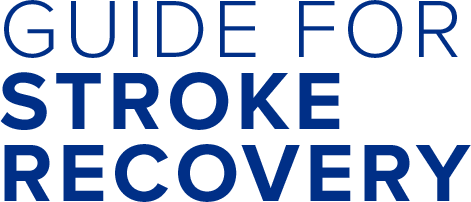The changes to your mind and body after a stroke can affect how you feel. It is normal to feel the following emotions after a stroke:
- depression
- apathy
- anxiety
- lability (trouble controlling emotions)/sadness
- grief
- anger
- frustration
- fear
These feelings can affect how you view life and how you cope with recovering after stroke.
Depression
Depression is sadness that does not go away and starts to affect your daily activities. Depression may be due to a chemical imbalance in the brain. Depression is common after stroke. It is a medical illness that can be treated.
Learn the warning signs of depression.
Only a doctor can diagnose you with depression, but others may be able to tell if you are showing signs of depression.
Talk to your health care provider if you have two or more of these warning signs for more than two weeks:
- feeling hopeless, ashamed or guilty about being a burden
- loss of interest in things you used to enjoy
- changes in your sleep pattern
- changes in appetite
- changes in weight
- feeling restless, irritable or impatient
- constant or frequent headaches, stomach upset or pain
- difficulty concentrating
- feeling tired, sluggish or lacking energy
Having thoughts of ending your life? Call your doctor, a helpline or 911 right away! You can find emergency phone numbers on the first page of the phone book.
You may be asked to complete a series of questions about how you feel. There are different questionnaires that a healthcare provider might use to determine if you have depression.
How can I manage my depression?
Depression can be treated. It is important to get help for depression as soon as possible. Many people find it hard to talk about their feelings with others. However, getting treatment from a skilled health care provider(s) will help with your recovery. The treatment you receive will depend on your needs.
Treatment may include counselling, taking medicines or both.

Apathy
Apathy is not caring very much about doing your usual activities. You may not feel motivated to do things that you normally would.
Usually, people with depression notice signs of apathy, too. Some signs of apathy are:
- feeling less motivated
- losing interest in things you used to enjoy
- having less energy than usual
- having difficulty expressing emotions
Anxiety
Some people feel anxious after having a stroke. Some signs of feeling anxious are:
- increased heart rate
- shortness of breath
- dizziness
- nervousness, restlessness, or feeling tense
- having a sense of danger, panic, or doom coming (for example: fear of another stroke)
Emotional Lability
Emotional lability means not being able to control your emotions. Lability is caused by damage to the frontal lobe of the brain which controls emotions.
The symptoms of emotional lability include fast and extreme shifts in emotions including bursts of laughter, crying, or anger. These reactions are usually not expected and might not match the situation you are in. Because people with emotional lability may cry a lot, their symptoms are often confused with depression.
Self-Esteem
The effects of a stroke can affect how you view yourself. Having lower self-esteem may cause you to feel like you have lost something about yourself.
Grief
Grief is a natural reaction to loss. Each person experiences grief differently and can feel grief at different times through their journey. Grief may include despair, shame, guilt, or withdrawal.
Tips to manage changes in your mood:
- Talk about your feelings with a trusted friend or family member.
- Find creative ways to express your feelings, such as writing, drawing, painting, or art.
- Reach out to a professional for counselling.
- Reframe your negative thoughts to be more positive. For example: “today is hard but I’ve
gotten better since last week”. - Practice visualization – picture yourself how you want to be.
- Take time every day to focus on doing something positive.
Personality or Behaviour Changes
Besides changes in mood, you may experience personality and behaviour changes. For example: you may become easily irritated or frustrated. You may not notice or be aware of these changes yourself, but the people who know you (family, friends,
colleagues) may notice.
Personality changes after a stroke may be distressing, but they are not always permanent. Speak to your health care team for ways to help manage these changes.
Many people find it hard to talk about their feelings with others. However, getting treatment from a skilled health care provider(s) will help with your recovery. The treatment you receive will depend on your needs. Treatment can include counselling, taking medications, or both.

Having read the information in this section, consider the following:
- Have I lost interest in things I used to enjoy?
- Has there been a big change or extreme shifts in my mood?
- Has there been a change in my behaviour or personality?
- Do I have changes in my sleep (sleep more than usual or trouble sleeping)?
- Am I easily irritable or frustrated?
- Do I feel less motivated or interested in doing my daily activities?
- Has my appetite changed?
- Do I have difficulty concentrating?
- Do I feel hopeless?
- Have I had thoughts about ending my life?
- Do I know where to get help if I answered ‘yes’ to any of the questions above?
Where to get more information, help and support:
Mental Health Helpline 1-866-531-2600
Ontario Association of Social Workers
Centre for Addiction and Mental Health
